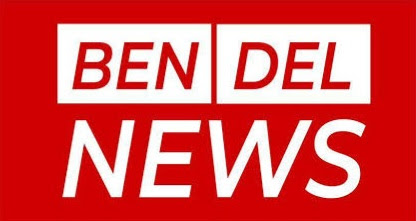10 contentious events under Buhari's eight-year presidency, including a Twitter ban and a redesign of the naira
On May 29, President Muhammadu Buhari will step down from office and turn the reins over to Bola Tinubu after eight years in office.
While the President's admirers refer to him as the "greatest President," his detractors use more disparaging terms to characterise him.
In this article, Bendelnews examines the eight years' worth of President Buhari's most contentious episodes.
TWITTER BAN
Nigerians relied on VPN for access to Twitter for more than six months after President Buhari's contentious ban on the service.
A post by Buhari that many people, especially in the Southeast, found objectionable was removed by Twitter.
"A large portion of those acting inappropriately now are too young to be aware of the devastation and casualties that resulted from the Nigerian Civil War. Regarding agitators in the Southeast, Buhari had said, "Those of us in the fields for 30 months, who lived through the war, will treat them in the language they understand.
The six-month ban was difficult for many who used the network for business purposes, including journalists who utilise it to gather news.
END SARS- Lekki Toll Gate
The Lekki Toll Gate incident on October 20 is arguably the most divisive event in the nation. Some claim that the military massacred young Nigerians who were protesting police brutality.
Since then, the anti-SARS demonstrators have grown into a potent movement that was quite influential in the recent election.
While some government supporters think the shooting was a fabrication perpetrated by opponents to harm the administration. On the list of contentious problems, this situation comes in first.
INVASION OF THE HOME OF JUDGES
On March 6, 2016, men from Nigeria's secret police carried out a Gestapo-style home invasion on a number of senior judicial officers.
The homes of two Supreme Court Justices—Justices Walter Onnoghen and Sylvester Ngwuta—as well as those of two federal High Court Justices—Adeniyi Ademola and Nnamdi Dimgba—were also invaded during the invasion, with the detention of the former.
Although the administration framed it as a battle against judicial corruption, Nigerians loudly criticised the action, viewing it as a crackdown on the judiciary.
SHUTDOWN OF THE BORDER
President Buhari ordered the closure of the country's land borders around three months after the start of the second term of his administration. His goal was to stop the smuggling of produce from surrounding nations.
This measure immediately affected the cost of cars and food, notably rice. Despite the fact that the administration attributes the policy for the "rice revolution," many Nigerians refer to it as a "anti-trade" policy.
INVASION OF THE HOME OF NNAMDI KANU
In the Southeast region, non-state actors who were successful in declaring Mondays a "public holiday" are collaborating with the government to share power. The area has evolved into a giant lair of kidnappers and a killing field.
The invasion of Nnamdi Kanu's home in 2017 served as the catalyst for the situation in the Southeast.
The assault took place about 24 hours after the Nigerian Army declared the South-Eastern states as the location of the second phase of Operation Python Dance II.
In the wake of Kanu's subsequent elopement, the issue in the area got worse. Kanu is the head of the Indigenous People of Biafra (IPOB). His imprisonment and forced reparation have made the situation in the area more unstable. All requests for Kanu's release have been refused by President Buhari.
NOMINATION OF DEAD PEOPLE
Buhari made roughly six nominations for posts in 2017; this may be a record.
Francis Okpozo, a senator from the second republic, Donald Ugbaja, a former deputy inspector general of police, and Ahmed Bunza, the previous single administrator of Kebbi state's Jega Local Government Area are some of the candidates.
Others were Kabir Umar, a former emir of Katagum in Bauchi state, and Christopher Utov, a former owner of Fidei Polytechnic in Gboko.
El-Zakzaky Shi'a
Over 1,000 Shi'a people are said to have died in an event involving the convoy of the former Chief of Army Staff Tukur Buratai, and Ibrahim Elzakzaky and his wife were detained.
Some of the infamous Elzakzaky's children are said to have perished in the altercation.
Years of his wife's detention with him sparked protests from his supporters and occasionally altercations with police officers.
INVASION OF NATIONAL ASSEMBLY BY DSS
When the DSS was once led by the ruthless Lawal Daura, even the Acting President Yemi Osinbajo was unaware of the siege of the National Assembly complex in Abuja.
Although Daura was later detained and removed from office by Osinbajo, many believed the invasion was intended to undermine Osinbajo.
Despite Osinbajo's action, the secret police's audacious manoeuvre was a direct insult to the legislature.
NAIRA SCARCITY
Nigerians battled a devastating Naira shortage for approximately two months as a result of the Central Bank Governor, Godwin Emefiele, revamping the Naira.
The policy's epic failure nearly destroyed the economy; several Nigerians died, banks were set on fire, and a violent revolt was on the verge of happening.
The nation was in a state of tension, and the Supreme Court had to issue a ruling on the matter.
With rumours that deep state forces were plotting a hostile takeover of the government, the policy even split the ruling party. During this time, Nigerians faced hardship.

